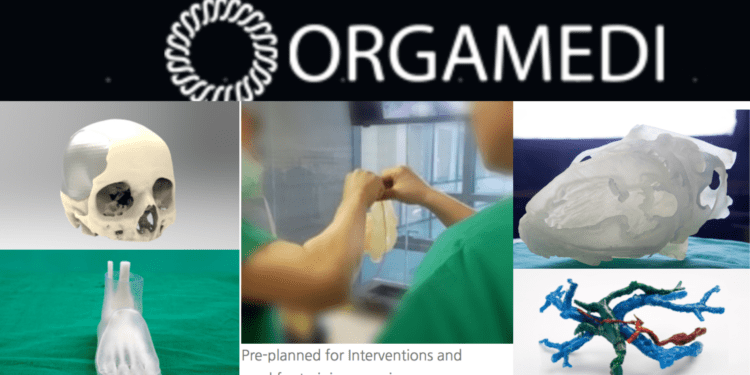The high cost of surgical equipment and human organs’ unavailability and parts during medical procedures have continuously plagued the medical sector. Even with the right equipment, a person seeking a heart transplant still has to wait for a viable donor for the operation to start. These problems have motivated the use of 3D printing technology to create relatively simple prosthetics to 3D printing a silicon prototype of a functioning human heart.
3D printing in the medical sector is used in speeding up surgery and produce cheap versions of the required surgical tools. The market value of 3D printing is expected to reach $14 billion by 2022, with more than 13% of company revenues coming from the medical sector. One startup paving its way in this field is Korean startup Orgamedi, which manufactures artificial human organs and surgical equipment through its state of the art 3D printing technology. Orgamedi is trying to save lives and make medical services cheaper.
Exceptional 3D products for medical use
Orgamedi uses 3D medical image data of patients from MRI or CT scans and uses it to create a customized artificial human organ that is an exact fit. Its 3D printed anatomical parts overcome the limits of X-rays, CT scans, and MRIs. The startup can create 3D anatomical parts of the stomach, liver, rectal, artificial joints, and cranial implants. Orgamedi even developed the first silicon prototype of a functioning human heart. Instead of coloring the surface of a mono-color print, Orgamedi’s models are printed with full-color filaments, which increases similarity with actual organs. The startup is the first company to provide flexible color 3D products in the world.
3D print for orthopaedic procedures
3D printing in the medical field makes the provision for personalized medicine more viable. Through the 3D printed products, older adults in need of knee or hip replacements can get exact printed anatomical implants, which are more accurate than traditional implants. The patients can avoid the second and third procedures to replace today’s less-effective implants. Spinal and bone fractures are common in most hospitals, with the patients needing implants and long rehabilitation to recover. In some of these risky spinal procedures, not having the right prosthetics or implants can significantly reduce the patient’s chances of walking again. Orgamedi makes exact and cheap spinal implants, prosthetics, and surgical guides that significantly increase the chance of success in these procedures and the patient’s chances of walking normally.
Future plans to produce 3D printed drug
With the evolution of 3D, there is considerable potential for developing 3D printed drugs in place of today’s medicine. These drugs are set to increase the efficacy and effectiveness of modern drugs while reducing their variability. In 2015, the US Food and Drug Administration (FDA) approved the first 3D printed drug, Sprintam, to treat epilepsy. Now, research is underway for a 3D printed “poly-pill,” where multiple drugs for different diseases are combined into a single pill, which can be given to patients with multiple diseases. Orgamedi plans to spearhead these pills’ innovation and has already started to research how its high-tech precision 3D printing can be used in their production. According to Orgamedi CEO David Kwon, “3D printing will make the clinical evaluation of drugs faster allow us to produce multiple iterations of the new drug making its production faster and cheaper.”
Orgamedi’s innovative 3D products and precision medicine is internationally acknowledged, with the startup being a COMEUP star in COMEUP 2020, South Korea’s biggest startup program and the Skolkovo Softlanding program. The startup plans to go international this year using partnerships from the Skolkovo Softlanding program to gain entry into the Asian market. Locally, the firm has partnered with SNUH, Yonsei university, KITECH, KIST, and KIMS to provide state of the art precision medicine and 3D printing. With increased investment in 3D printing by firms and governments alike, the future for Orgamedi looks bright.
Read more about 3D printing in medical field,
- Korean company Carima contributes to fighting COVID-19 with 3D Printing of NP swabs & face shields
- Korean startup Mand.ro hopes to help humanity by making affordable 3D hand prosthetics
- Korean startup ROKIT HEALTHCARE revolutionizing organ regeneration with 4D Bioprinting
- World’s First Artificial Intelligence Orthodontic Technology






